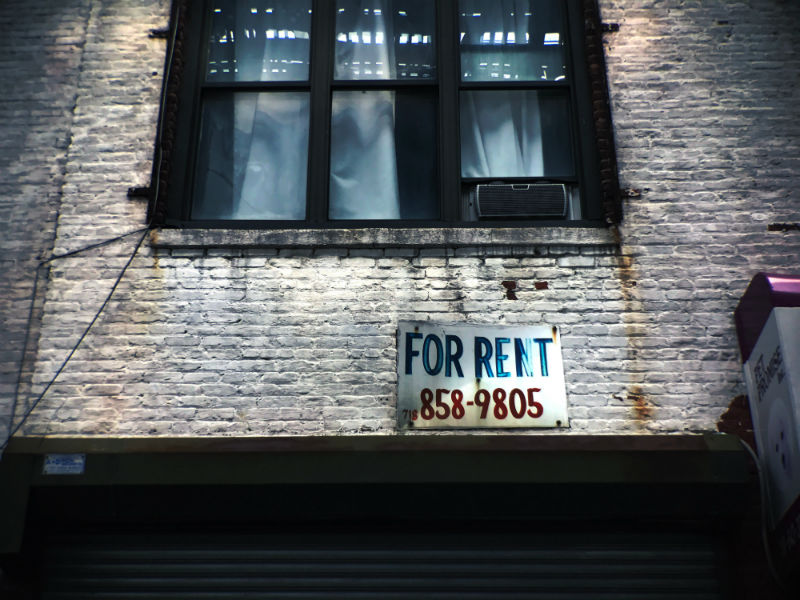
Most commercial lease arrangements allow tenants to rent-out their usable space to a third-party renter. Although this can be a cost-effective way to maximize commercial space, tenants must be careful: when a tenant decides to rent part or all of their commercial space to a third-party, they are fully responsible for the actions or inactions of the new renter.
When it comes to commercial real estate, a legally-binding agreement is often signed between a landlord and a tenant. But when the tenant decides to sublet or assign their lease to a third-party, they become the sublessor, while the new third-party renter becomes the sublessee. Sometimes, the sublessor and sublessee are referred to the primary and secondary tenant respectively.
In any case, there’s only one legally liable party in the sublessor-sublessee relationship: the sublessor. In other words, should the sublessee damage the property or fall-behind on payments, compensating the landlord is the primary tenant’s legal obligation. Nonetheless, choosing a trustworthy and reliable third-party renter often results in a winning situation for both parties.
Get a Lawyer to Review Your Lease
Can I Rent Out my Commercial Unit?
In most instances, tenants are indeed allowed to rent their commercial space to third-party renters. However, this is usually up to the discretion of the landlord. Likewise, subletting must be done in-compliance with local state- and municipal-laws.
Before making any commitments to potential renters, tenants should ensure they are legally allowed to rent their usable space. This determination often depends on three factors:
- State- and Municipal-Regulations
- The Original Commercial Lease Agreement
- Landlord Consent
First—and perhaps foremost—tenants should review their local housing regulations. Some areas require a landlord’s written-consent before tenants can sublet or assign their lease. Even when states don’t make landlord-consent a prerequisite, landlords themselves often write provisions into the original lease that ensures permission is granted before subletting. Thus, you’ll need to revisit the terms and conditions of your original commercial lease agreement.
The original lease should contain specific language about subletting, however these provisions are oftentimes absent. If subletting provisions are indeed missing, you’ll need to speak to the landlord directly. So long as the landlord’s permission is granted and the arrangements are compliant with local laws, tenants are allowed to rent-out their unit to whom every they wish. Primary tenants that meet these requirements typically have two options: they can 1) sublet their commercial lease, or 2) assign their commercial lease.
Get a Lawyer to Review Your Lease
Subletting vs. Assigning the Lease
Subletting and assigning are two different ways to structure the relationship between a primary and secondary tenant. Although the structures are similar, they have important practical differences.
- Lease-Assignment: the complete transfer of rental rights from a primary tenant to a third-party renter (importantly, the primary tenant is still responsible for the terms of the original lease)
- Subletting: the partial transfer of rental rights from a primary tenant to a third-party renter, usually for a temporary period of time or for only a portion of the usable space
When a tenant assigns their lease to a third-party renter, they are offering the entirety of their usable space without the intention of returning. This is unlike a conventional sublease structure, which offers only part of the unit and usually for a temporary period of time.
Why would a business owner want to assign their commercial lease? Importantly, a tenant is legally obligated to carry-out the terms of their commercial lease agreement, regardless of the circumstances. Lease-assignment is practical when original tenants cannot—for whatever reason—uphold their end of the lease. For example, if a business owner signs a 3-year commercial lease, but goes out of business 2-years into the agreement, they’ll likely seek somebody to complete the final 12-months of the term.
On the other hand, if a primary tenant is only interested in splitting their usable space or looking for a temporary third-party renter, subletting is the more practical option.
Get a Lawyer to Review Your Lease
Who is the Responsible Party?
The commercial lease between the landlord and tenant is a legally-binding document. Regardless of the tenant’s situation, they are required by-law to carry-out the terms and conditions of the contract. Even when a lease is assigned to a third-party renter, the primary tenant is still responsible for the rental obligations.
Perhaps unsurprisingly, the same rules apply to subletting. When a tenant sublets their usable space, they remain the sole responsible party; should the third-party renter fail to make payments or cause damage to the rental unit, the original tenant is responsible.
Verbal or written agreements between tenants and third-party renters are great for establishing rules and responsibilities, but are more-so personal arrangements and not legally enforceable. For this reason, it’s imperative that choosing a third-party renter is given ample consideration—regardless if you’re assigning your lease or simply looking to sublet. It’s not unfair to request bank statements, criminal histories, or credit reports before making a commitment to a secondary tenant.
In some situations, landlords will in-fact release the original tenant from liability when the lease is assigned to a third-party renter, rendering the new renter responsible for the terms of the original lease. This is sometimes called “permeant assignment” and is definitely worth exploring when considering lease-assignment. Usually this stipulation is negotiated between the landlord and tenant; an experienced legal professional may be helpful in these situations.
 June 11, 2019
June 11, 2019

